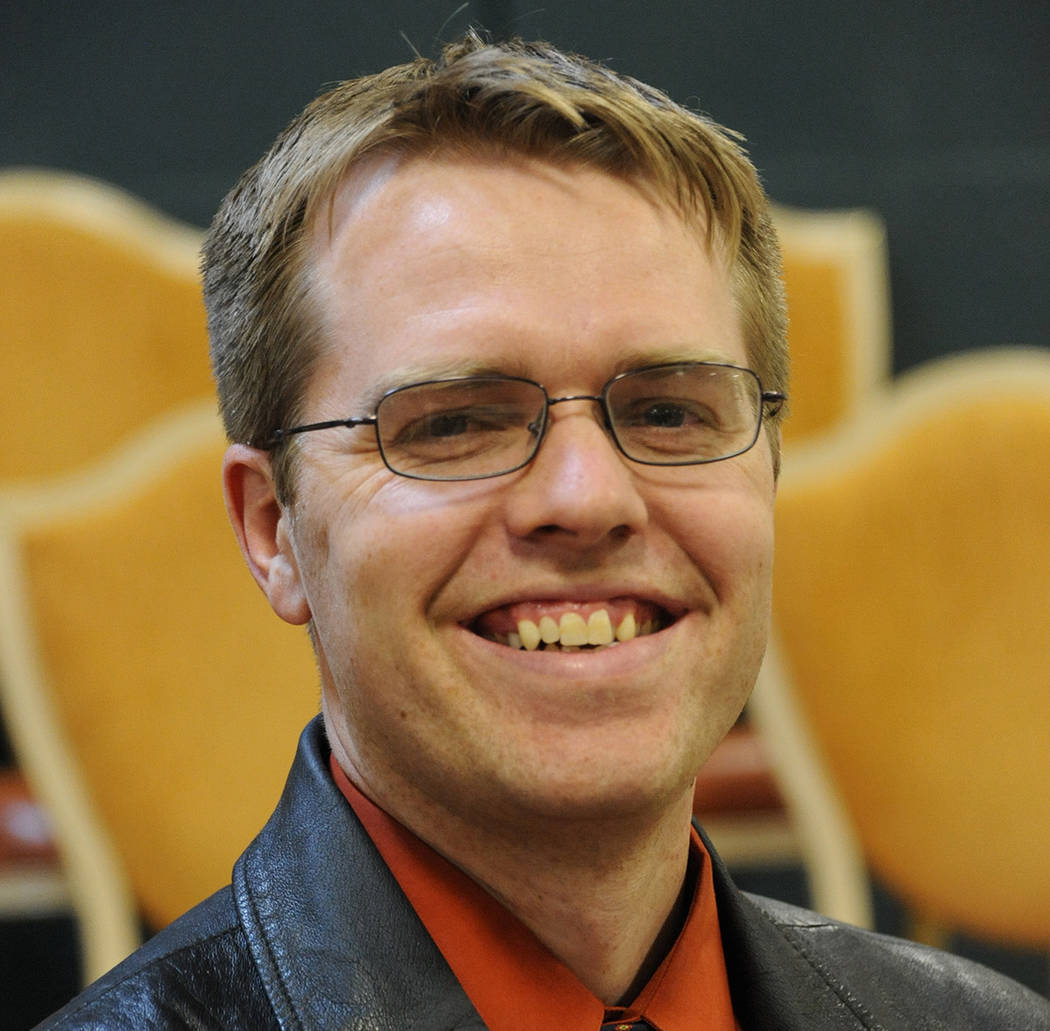Politics, religion can peacefully coexist
I love my faith, I love being involved in politics and I love Boulder City. I’m Mormon, and for as long as I have lived in Boulder City there has been discussion about the interaction of Mormonism and Boulder City politics.
Some say that religion should not be a test for jobs or for political office, yet others simply feel there are too many Mormons. While some of this concern is from hatred or bias against a single individual and some simply stems from wanting to get rid of people they politically disagree with, there is a group of honest people who simply feel that the numbers don’t add up.
I have attempted to look up what percentage of the population in Boulder City belongs to The Church of Jesus Christ of Latter-day Saints. The numbers vary from 6.5 percent to 16 percent. Whatever the number, it is clear that representation in upper city positions and in local offices exceeds this percentage. So I can understand an honest person saying, “You Mormons are biased for Mormons.”
I would love to say there is absolutely no bias, but I can’t unequivocally say that. Some Mormons (I hope very few) are dishonest, and all of us are human and as humans have our biases, even when we do our best to be completely objective. All of us, Mormon or not, should always seek to examine our biases and try to limit them.
Before you run with the idea of “See, I knew those Mormons were cheating,” let me offer a few other reasons why we may have large numbers in city offices.
Mormons have always been very engaged in politics. When it comes to voting, Mormons simply show up to the polls more often than other voting blocs. They also get engaged and therefore run for office more. This is clearly the case in Boulder City.
Since I have been in town, many complain about Mormons on the City Council, but the simple fact is we have lots of Mormons on City Council because they are the ones who run. Each Mormon on the council had to go to a vote of the public to win his or her seat.
Also Mormons are a very tight-knit group. They attend church in higher percentages than many denominations and therefore see one another more often and grow closer together. So when jobs become available, they hear about it and therefore apply in larger numbers. I do not know the number of those who applied for city attorney, but we know a group of four selecting officials (only one of whom was Mormon, as far as I know.) selected two Mormons to be in the final four candidates.
Mormons’ high involvement in politics, leading to other citizens being upset is nothing new. When a large group of Mormons moved to Missouri in the 1830s, many were very concerned. They worried Mormons would win all the political seats (sound familiar?). Most importantly to those in Missouri, Mormons came from areas more sympathetic to abolitionists. They worried that if too many came, they could lose slavery.
This led to intense conflict, escalating to a fight between Missouri militia and armed Mormon men known as the 1838 Mormon War. During the fight, three Mormons and one militia member died. Gov. Lilburn Boggs received exaggerated reports stating that Mormons had killed half the militia. After this, Boggs issued an extermination order, which stated in part that “the Mormons must be treated as enemies and must be exterminated or driven from the state if necessary for the public peace.”
Mormons were forcibly removed from their homes. Property was stolen and destroyed; estimates are over $24 million in today’s dollars. But far worse than the property damage were the lives lost. Some were killed after surrendering their weapons. Sardius Smith, 10, and his 7-year-old brother were found hiding in Haun’s Mill, where both were shot and killed.
William Reynolds, who shot Sardius at point-blank range, justified it by saying, “Nits make lice, and if he had lived he would have become a Mormon.” This event become known as the Haun’s Mill Massacre, and in all 17 men and boys were killed. Many others would die from exposure after being driven from their homes in the middle of winter. One of those young men was Daniel Porter Clark. Daniel’s third-great-grandson serves as Boulder City’s mayor today.
Thankfully, we have come a long way since 1938. But have we come far enough? I have been very open about my love of local politics, and at times people say to me, “You know, you should run for office.” How sad it is that this is often followed with “too bad you’re Mormon.”
Nathaniel Kaey Gee resides in Boulder City with his wife and six children. He is a civil engineer by day and enjoys writing any chance he gets. You can follow his work on his blog www.thegeebrothers.com.





